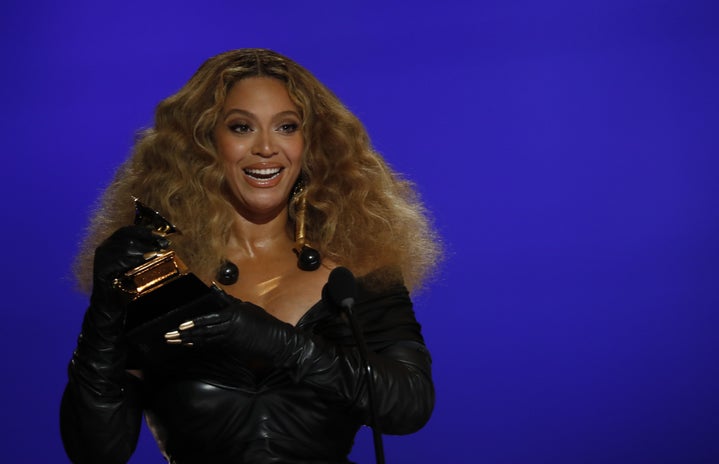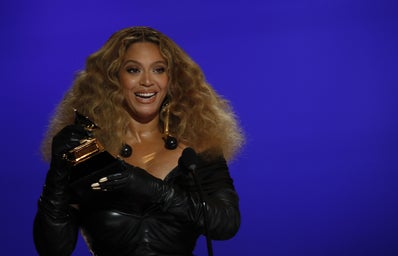Written By: Emily Komons
The Grammy Awards are soon to be broadcast live on Feb. 4, 2024. They are commonly regarded as the gold standard of acclaim in the music industry and have not always been without controversy throughout the years. One of the reoccurring issues is the selection procedure and apparent biases in the voting mechanism. According to critics, the Grammy Awards premonition mass and commercial success over creative value. According to them, some genres, including hip-hop and electronic, have long been underrepresented and neglected in important categories. This resulted in charges of a schism between the Grammy voting group and the changing musical scene.
There is also the issue of snubs, in which popular and critically praised albums or performers are excluded from important categories. Fans and musicians alike have rushed to social media to vent their displeasure and dismay at the Grammy voters’ apparent disregard for their favorites. Furthermore, the lack of diversity among nominees and winners continues to be a source of contention. Increased calls for more participation across race, gender and ethnicity have prompted the Recording Academy to take measures toward a more inclusive and transparent selection process.
The Grammy’s controversy surrounding bias and diversity has laid bare the systemic issues plaguing the music industry’s most prestigious awards. Critics argue that there is an inherent bias in the nomination and voting processes, leading to the underrepresentation of artists from diverse backgrounds. The lack of transparency in how nominees are selected has raised concerns about hidden biases that may favor certain genres or artists. The controversy also extends to issues of race and ethnicity, with accusations that the Grammy’s have consistently overlooked and undervalued artists of color. The call for increased diversity in both the nominee pool and the Grammy’s decision-making bodies has grown louder, with demands for a more inclusive representation that reflects the true breadth of musical talent. The conversation has become a catalyst for change, prompting the industry to reevaluate its standards and practices to ensure a fair and equitable platform for all artists, regardless of their background or genre.
The Grammys’ race and gender/ethnicity scandal has shone a bright focus on the industry’s long-running difficulties with diversity and representation. Critics have often called out the underrepresentation of musicians from varied backgrounds, especially in regards to nominations and actual awards. The topic has spurred discussions on the need for a more egalitarian and inclusive music industry that takes into account the rich tapestry of talent from diverse racial, ethnic, and gender identities. The cry for structural change has grown louder, with musicians and activists pressing the Grammys to confront the discrepancies square on. It is a critical time for the music business to rethink its institutions, combat prejudices, and guarantee that talented musicians from every aspect of life are not merely acknowledged but honored on one of the industry’s most famous platforms. The Grammy Awards scandals underscore the greater issues that award ceremonies confront in a constantly evolving and diversified music business. As the debate about justice, diversity and relevancy persists, the Grammy Awards find themselves at the heart of a perpetual fight to strike a balance between tradition and the need for progress.
According to an interview podcast appearance on the Zach Sang Show, he invites one of the most iconic singer-songwriter and actress, Ariana Grande. He noted and discussed the Grammys situation with her. Ariana Grande resembled an open book in the interview, flicking over pages of her feelings on the Grammys. It was an upsurge of emotions, from appreciation to fury, delivered with Ariana Grande’s trademark charm. One of the most memorable parts was when she mentioned being conflicted. On the one hand, she likes the recognition and respect that comes with being nominated, but on the other, she is disappointed in certain areas. She wasn’t shy about speaking out against the industry dynamics and politics that may often obscure creative excellence.
What struck the most was Ariana’s focus on the value of her followers and the bond she had with them. It’s not just about the accolades; it’s about the music and how it affects those who listen. She isn’t hesitant to stand up for her work or express her beliefs, which is both refreshing and powerful. Ariana Grande displayed a mix of sensitivity and power in the Zach Sang Show interview, handling the difficult environment of the music industry with elegance. It’s an indication that beyond the gorgeous exterior, musicians like Ariana are genuine people with real sentiments who have no hesitation in expressing their truth—even if it’s in the thick of Grammy talk.
Another artist who is not afraid to speak upon the Grammys, is The Weeknd. According to an article from The New York Times, they discussed The Weeknd, who was snubbed, says he will boycott the awards going forward, in a sign of continuing friction with artists.The Weeknd’s reaction to the Grammys scandal was a powerful blend of disappointment and determination. After being passed over for nominations, he took a position, criticizing the Grammys for their lack of openness and accused the organization of corruption. For the Weeknd, the entire process has proved unacceptable. In a statement to The New York Times, he said he would boycott the awards from now on. “Because of the secret committees,” the Weeknd said, “I will no longer allow my label to submit my music to the Grammys.”
The singer, noted for his soulful voice and chart-topping tunes, has opted to boycott future Grammy appearances, highlighting the need for fundamental changes to the award system. Many in the industry were moved by The Weeknd’s strong criticism, which shed emphasis on problems of fairness, diversity, and the subjective nature of awards. His choice to favor creative integrity above plaudits spurred a larger debate about the worth and legitimacy of such organizations, advocating for more inclusive and reflective acknowledgment of artists from all genres and backgrounds. The Weeknd’s statement became a watershed moment in the continuing debate regarding the Grammys and its role in creating the music industry’s narrative.


